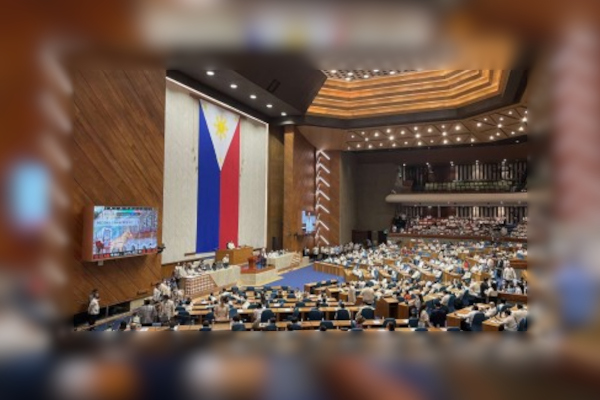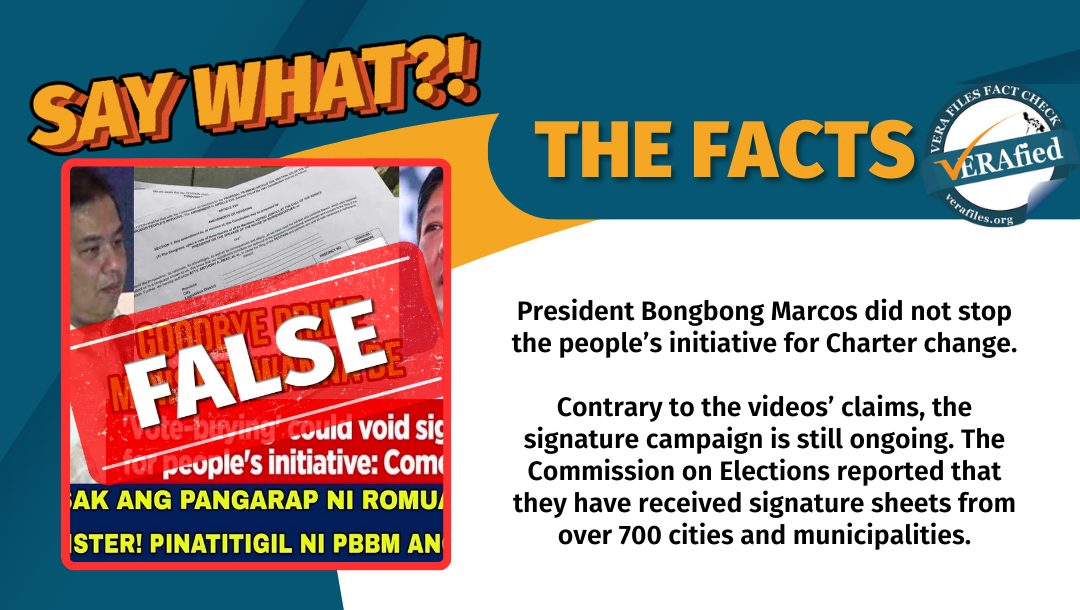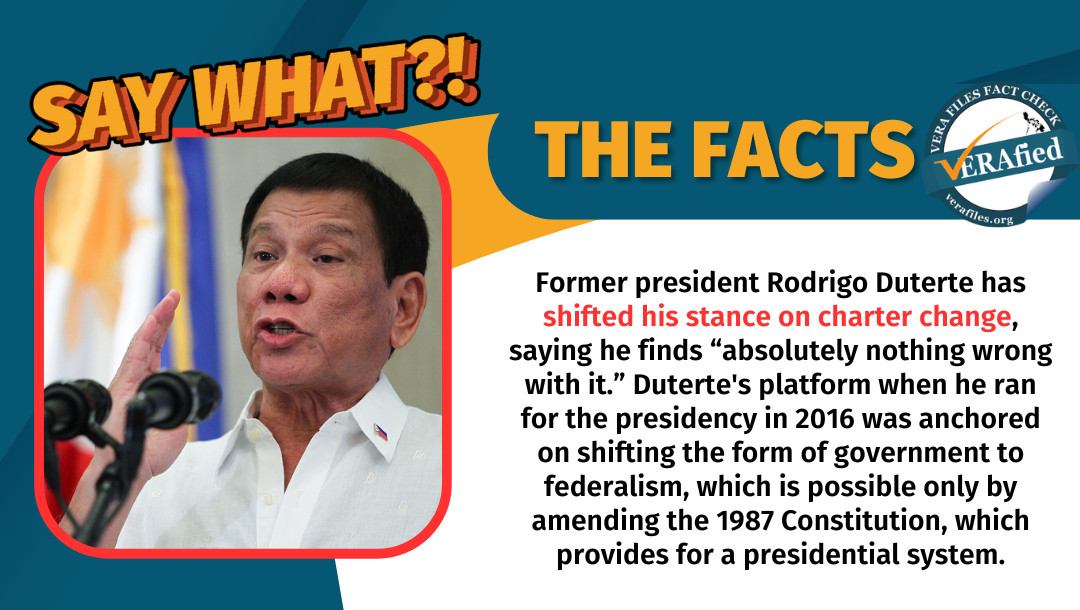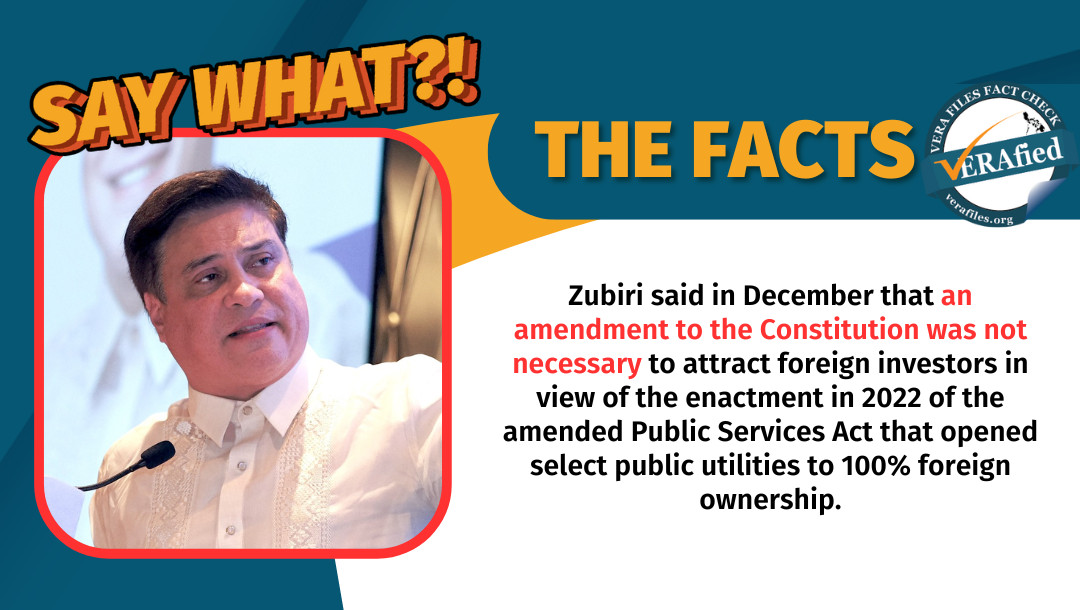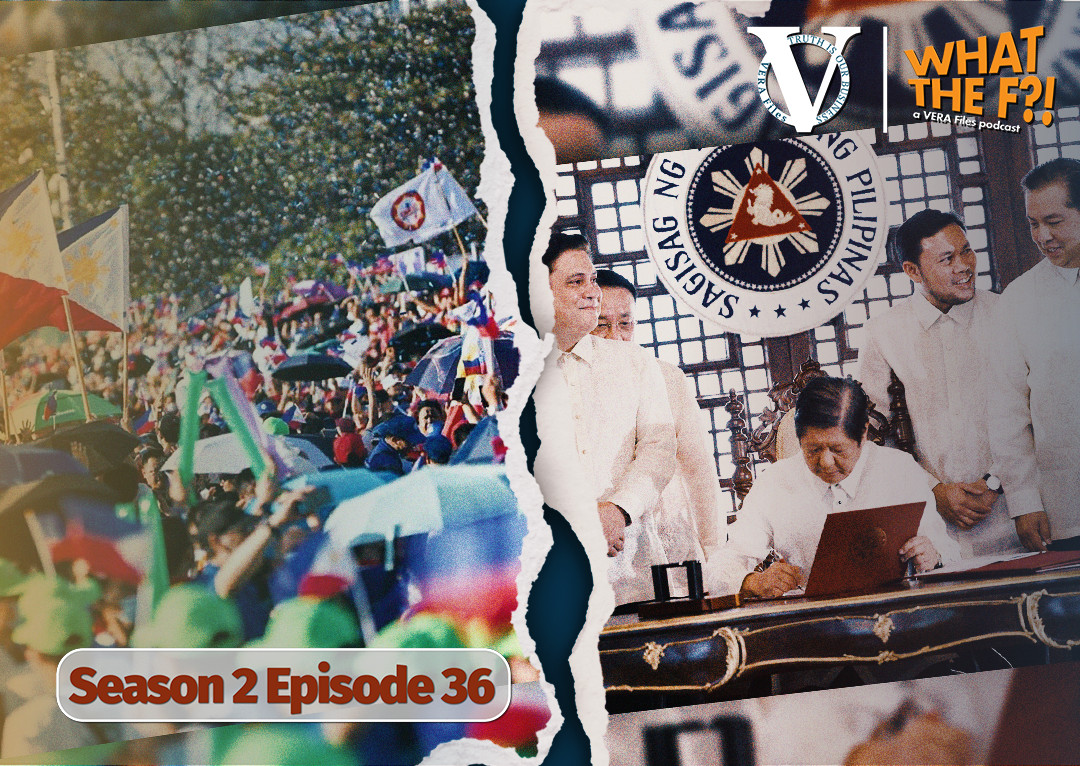Opposition to Charter change has doubled from a year ago despite President Ferdinand Marcos Jr.’s push for it.
According to the latest Pulse Asia survey results, the number of people who don’t want the 1987 Constitution amended has jumped from 45% in March 2023 to 88% last month.
The big leap against Charter change (Cha-cha) should compel legislators to abandon the move to lift the ownership restrictions in the 1987 Constitution, that is, if they are truly serving the public interest.
Leaving out Cha-cha in the legislative agenda would disabuse the minds of critics and skeptics that those pushing the amendments are exploiting the economic provisions to open an opportunity to insert political changes such as removing the term limits.
Besides, the route Congress is taking to pave the way for lifting the ownership restrictions in public services, education and advertising is questionable. It is outside the three modes specified in the Constitution: a constituent assembly with the Senate and the House of Representatives convening as one body, a constitutional convention with elected delegates, and a people’s initiative.
Some lawmakers have invoked a “fourth mode” mentioned by the late Fr. Joaquin Bernas, SJ, a respected member of the 1986 Constitutional Commission, in an opinion column published in 2012. This would involve the Senate and the House holding separate sessions and focusing on specific amendments, but the vote required would be three-fourths of a chamber’s membership to pass an amendment instead of a simple majority of a quorum. It would then be submitted to a plebiscite.
But, as former chief justice Reynato Puno has said, this was merely a proposal from Bernas and was “never discussed” in drafting the 1987 Constitution. So, should Congress insist on adopting the pending resolutions through the Bernas “formula,” it would invite a “serious constitutional challenge,” Puno said.
Lawyer and legislative consultant Michael Henry Yusingco viewed Bernas’ “fourth mode” as a proposal on how to operationalize a constituent assembly.
Pulse Asia vs Tangere
The result of the Pulse Asia survey, conducted from March 6 to 10 using face-to-face interviews with 1,200 respondents ages 18 years and older, is in stark contrast to another poll by a little-known market research firm calling itself Tangere, claiming that 52 percent of Filipinos favor Charter change.
The Tangere survey, released on March 22, said 14% of Filipinos “strongly agree,” while 38% “somewhat agree” with the proposed constitutional amendments.
Cha-cha advocates in the House of Representatives led by Speaker Ferdinand Martin Romualdez readily welcomed the Tangere survey result. “This indicates a pivotal shift in public sentiment, revealing a growing acceptance and willingness among our citizens to consider the merits of constitutional reform,” Romualdez said in a statement on March 24.
Senior Deputy Speaker Aurelio Gonzales Jr., a Cha-cha advocate, announced the Tangere survey results but omitted important details such as the sampling and methodology used, number, demographics and location of respondents, the questions asked, and who commissioned the opinion poll.
It now appears that the Tangere survey was used to manipulate public opinion, which, as the Pulse Asia poll shows, has substantially grown against Cha-cha, from 45% in March 2023 to 88% last month. Consequently, those favoring Cha-cha have dwindled from 41% in March 2023 to just 8% last month.
Of the 88% opposed to Charter change, 74% believe the Constitution “should not be amended now nor any other time,” while 14% said it “should not be amended now, but it may be amended sometime in the future.”
Who would you believe, the Pulse Asia or Tangere survey?
Pulse Asia, run by academics with expertise and years of practice in social science disciplines, has been periodically conducting “Ulat ng Bayan” national surveys. Tangere describes itself on its website as a “customer-centric market research company focused on helping clients achieve their goals.”
Interestingly, the Pulse Asia survey was conducted after Marcos shifted from saying in February 2023 that Cha-cha was “not a priority” to supporting last February the efforts to amend provisions on “economic matters alone” as he rejected the call of former president Rodrigo Duterte for Mindanao to secede.
As the House-backed people’s initiative became more controversial, with allegations of bribery and other forms of corruption, Marcos asked the Senate to “take the lead” in amending specific provisions.
But Marcos’ endorsement of the proposal to focus only on economic Cha-cha did not help the Cha-cha advocacy.
Opinion surveys by reputable polling firms like Pulse Asia and Social Weather Stations consistently show that a majority of respondents reject Cha-cha and that a substantial percentage of respondents were unaware of or had little awareness of the proposed amendments.
Despite the negative reactions of the public to Cha-cha initiatives, legislators, particularly the allies of the president in the House of Representatives during the past and the present administrations, insist on tinkering with the Constitution.
Almost every administration after 1992 attempted to amend or even revise the 1987 Constitution, but none succeeded. Previous attempts were anchored in creating a unicameral system of government, shifting from a presidential to a parliamentary form of government, and others barely concealed the intention to remove term limits.
Why does the public opposition to Charter change fall on deaf ears in Congress? Obviously, the politicians put a premium on their self-interest, forgetting their obligation as public servants to always uphold the public interest over their own.
The views in this column are those of the author and do not necessarily reflect the views of VERA Files.
This column also appeared in The Manila Times.
